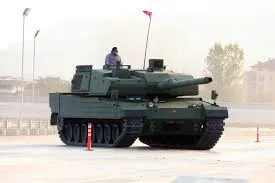Additional to the Public Tender Act no. 4734 Article 3, principles that were agreed upon on the procurement of defence technologies on the date of 19/2/2018 came into force on 22/03/2018 with its publication in the Official Gazette no. 30368.
In a broad outline, the principles specified reflect upon the operational process and procedural courses of procurement of services and products, research and development projects, feasibility studies and consulting services. It is emphasized that the principles here stated are effectual for SSM and the corporations, companies or organizations of which SSM directly or indirectly owns at least 50% of its capital; and not applicable to the collaborations of international and multilateral nature.
The principles set out to explain the procurement methods of three kinds enabled: Procurement can be done by tender, supply from one source or competition method. By tender, parties present offers about technical details and price offerings. In extreme situations where national security obliges SSM to do so or standard technological abilities seem to be highly differentiating, SSM can choose to purchase from only one source. Competitions method foresees a competitive environment where multiple potential contractors present their prototypes to win the contract. Competition method’s usage is witnessed a lot more in recent years, which indicates that contractors shall keep handy prototypes.
SSM will be announcing a call for offers for the regarding project, service or technology through its website or sending of the call files. The announcement and publications of the call for offers is the inception of the tender process immediately.
Before the notice for the tender call, the SSM usually studies a cost analysis about the regarding project and evaluates the offer also on the cost basis, but still if the project is too complex that it inhibits any such cost analysis, the SSM will just compare and contrast various aspects of the offers ranging from financing to technical details.
The results about the evaluation are forwarded to the Executive Board of Defence Industries where the final decision on the selection of contractor is made. If a resource capital, namely a cost analysis that indicates the upper limit for the procurement, is present, the board decides on the contractor keeping in mind the resource cap. As to be aware of the exceptions to the procedures, there may arise urgent procurement projects. These projects are brought to the immediate consideration of the undersecretary and left to his or her final decision because of the urgency of the matter.
An important thing to bear in mind here is that the principles clearly allow for the selection of multiple parties as contractors as long as the conditions for competition are not harmed.
Furthermore, SSM usually demands a temporary indemnity payment but if the indemnity payment is specified as unnecessary in the call for offers filing, the contractor does not have the obligation to make the payment. Also, the SSM obliges the candidate parties to the contract to secure a definite indemnity payment before the landing of the contract. The guarantee will be valued at 6% of the value of the contract and will be done by the contractor. This will reassure both parties as a motivation of the definite completion of the promised project. Along with reasonable justification, in some cases, upon the approval of the SSM, it may be agreed upon that a definite indemnity payment is not obligatory. Even then, the non-advance payments will be cut at the ratio of 6% and the amount will be withheld as guarantee. Still, parties that do not by nature and in the scope of the regulations in force have the obligation to make the payment, will be free of any guarantee payments, but that depends on the concerned regulation and regarding project. Also, if an advance payment is demanded, the advance will be paid right after the indemnity payment of the same amount is paid.
To sum up, the principles specified aim to stimulate commercial and technological livelihood in the defence industry sector of Turkey. While seeking to guide potential local producers and contractors, the principles also provide for the preservation, protection and implementation of its fundamental structuring for a successful and operational industry without jeopardizing any legitimation and justification about the facilitation of transactions in the defence industry.


